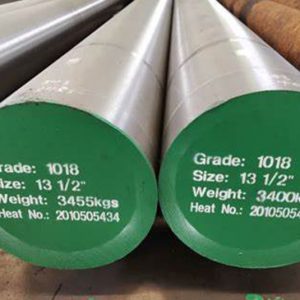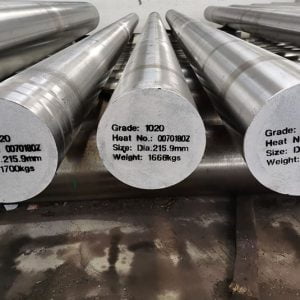Introduction

In modern engineering, hollow steel pipes play a pivotal role in various applications due to their versatility, strength, and durability. Understanding their significance and applications is crucial for engineers and professionals across different industries. This blog delves into the multifaceted role of hollow steel pipes in modern engineering, exploring their characteristics, applications, benefits, and more.
Characteristics of Hollow Steel Pipes
Hollow steel pipes possess several key characteristics that make them indispensable in engineering projects:
| Characteristic | Description |
|---|---|
| Strength | Hollow steel tubes offer exceptional strength-to-weight ratio, ideal for structural support and load-bearing applications. |
| Durability | Resistant to corrosion, weathering, and other environmental factors, ensuring long-term reliability in various conditions. |
| Versatility | Available in various shapes, sizes, and configurations, making them adaptable to diverse engineering needs. |
| Cost-effectiveness | Economical choice compared to alternatives, offering high performance at a competitive price point. |
Applications of Hollow Steel Pipes
Hollow steel tubes find extensive applications across a wide range of industries:
Construction and Infrastructure
Hollow steel pipes serve as foundational elements in construction and infrastructure projects, providing essential support and structural integrity. They are widely utilized in:
- Building Frameworks: Hollow steel tubes form the backbone of modern buildings, supporting floors, walls, and roofs with their exceptional strength-to-weight ratio.
- Bridges: Steel pipes are integral components in bridge construction, offering robustness and durability to withstand heavy traffic loads and harsh environmental conditions.
- Infrastructure Projects: From highways to railways, hollow steel tubes play a crucial role in the development of transportation networks, providing reliable support for overpasses, tunnels, and elevated structures.
Transportation
In the transportation sector, hollow steel tubes find diverse applications due to their lightweight yet sturdy nature, contributing to efficiency, safety, and performance:
- Automotive Industry: Hollow steel tubes are essential for automotive chassis, frames, and roll cages, providing strength and rigidity while minimizing overall vehicle weight for improved fuel efficiency and handling.
- Aerospace: In aircraft construction, hollow steel tubes are used in fuselage structures, landing gear components, and engine mounts, offering high strength-to-weight ratio and resistance to fatigue.
- Marine: Hollow steel tubes are utilized in shipbuilding for hull construction, piping systems, and offshore platforms, withstanding corrosive marine environments and supporting heavy loads.
Oil and Gas
In the oil and gas industry, hollow steel pipes are indispensable for the transportation of fluids and gases across vast distances, ensuring reliability and safety:
- Pipelines: Hollow steel pipes form the backbone of oil and gas pipelines, delivering crude oil, natural gas, and refined products from production fields to refineries and distribution centers. Their durability and corrosion resistance make them ideal for both onshore and offshore applications.
- Drilling Equipment: Steel pipes are used in drilling operations for casing, tubing, and wellbore completion, providing structural support and fluid conveyance in extraction processes.
Manufacturing
Within manufacturing facilities, hollow steel pipes play various roles in supporting machinery, equipment, and material handling systems:
- Conveyor Systems: Steel pipes are utilized for conveyor frames, rollers, and supports in manufacturing plants and warehouses, facilitating the efficient movement of goods and materials along production lines.
- Scaffolding: Hollow steel tubes serve as scaffolding structures for construction and maintenance projects, providing safe access and support for workers at elevated heights.
- Material Handling: Steel pipes are used for racks, shelves, and storage systems, organizing and storing raw materials, work-in-progress, and finished products within manufacturing facilities.
Renewable Energy
In the renewable energy sector, hollow steel pipes contribute to the expansion of sustainable energy infrastructure, particularly in wind and solar power generation:
- Wind Turbine Towers: Hollow steel tubes form the main structural components of wind turbine towers, supporting the rotor and nacelle at elevated heights. Their strength and durability are essential for withstanding wind loads and environmental stresses.
- Solar Panel Mounting Structures: Steel pipes are used in ground-mounted and rooftop solar panel installations, providing support structures for photovoltaic arrays. Their versatility and ease of installation make them ideal for solar energy projects in various locations and environments.
Advantages of Hollow Steel Pipes
The use of hollow steel pipes offers several advantages over alternative materials:
- High Strength: Ensures structural stability and safety, even under heavy loads and adverse conditions.
- Corrosion Resistance: Longevity and low maintenance requirements due to resistance against rust and corrosion.
- Design Flexibility: Enables creative and efficient design solutions, supporting innovative engineering projects.
- Environmental Sustainability: Recyclable and eco-friendly, contributing to sustainable practices and reducing environmental impact.
Case Studies: Hollow Steel Pipes in Action
Illustrating the practical applications and benefits of hollow steel tubes, let’s explore a few notable case studies:
- Bridge Construction: The use of hollow steel tubes in bridge construction significantly reduces material costs while ensuring structural integrity and longevity.
- Offshore Platforms: Hollow steel pipes serve as foundational elements for offshore platforms, withstanding harsh marine environments and supporting heavy equipment.
- High-rise Buildings: Incorporating hollow steel tubes in high-rise building frameworks enhances stability and seismic resistance, crucial for urban development projects.
- Automotive Manufacturing: Lightweight hollow steel tubes are integral in automotive manufacturing, improving fuel efficiency and vehicle performance.
Specifications of hollow steel pipes:

| Diameter (inches) | Wall Thickness (inches) | Length (feet) | Material Grade | Application |
|---|---|---|---|---|
| 1 | 0.065 | 20 | ASTM A500 | Structural Support |
| 3 | 0.120 | 24 | ASTM A513 | Automotive Chassis |
| 6 | 0.250 | 40 | ASTM A53 | Oil and Gas Pipelines |
| 10 | 0.375 | 30 | ASTM A106 | High-Pressure Systems |
| 18 | 0.500 | 45 | ASTM A252 | Offshore Platforms |
Conclusion
Hollow steel pipes stand as indispensable components in modern engineering, offering unparalleled strength, durability, and versatility across diverse applications. From construction and infrastructure to transportation and renewable energy, their significance continues to shape the landscape of engineering innovation. By understanding their characteristics, advantages, and applications, engineers can leverage the full potential of hollow steel pipes to drive forward groundbreaking projects and sustainable development initiatives.
FAQ
Q:Are hollow steel pipes suitable for underground applications?
A:Yes, hollow steel pipes are commonly used underground in applications such as drainage systems and underground utilities due to their corrosion resistance.
Q:What are the standard sizes available for hollow steel pipes?
A:Hollow steel pipes come in various standard sizes, typically ranging from diameters of 1 inch to 24 inches, with wall thicknesses tailored to specific requirements.
Q:Can hollow steel pipes be welded easily?
A:Yes, hollow steel pipes are conducive to welding and fabrication processes, allowing for seamless integration into complex structures and assemblies.










